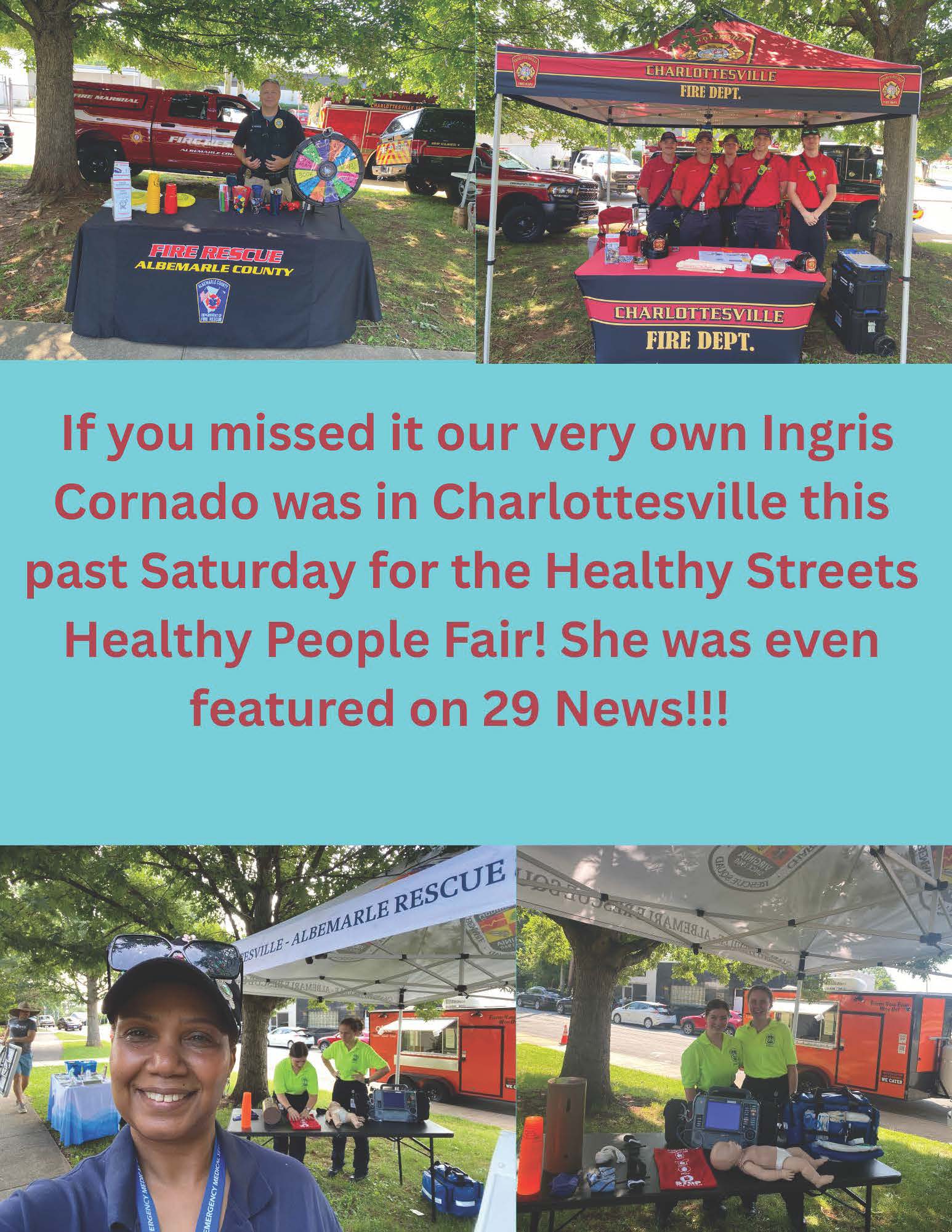TJEMS Community Outreach Activities
Community Outreach Coordinator Ingris Coronado, alongside many TJEMS providers, participated in numerous regional events to promote health, safety, and emergency preparedness:
- Mental Health Fair, Washington Park (Charlottesville): Partnered with Charlottesville-Albemarle Rescue Squad (CARS CARES) and Albemarle County Fire Rescue to engage commuters and promote mental-health awareness.
- Seas of the Day, North Garden (Albemarle): Joined Albemarle County Fire Rescue and North Garden Rescue in interactive activities with families, children, and elders.
- Louisa Community Events: Collaborated with Bumpass Fire and Lake Anna Rescue to provide public education and outreach.
- Nelson Health Fair: Worked with Wintergreen Fire & Rescue and Nelson EMS to connect with local residents and share health resources.
- Rowing for Responders, Charlottesville: Supported Albemarle County Fire Rescue’s participation in this fundraising event for local emergency services.
- Community Health & Safety Day, Louisa: Planned participation with Louisa County Fire & EMS to deliver health and safety information to attendees.
It is important to note that these are just a few examples of the many events across the region where EMS agencies have actively participated. Last year, Ingris attended numerous events in Fluvanna, Madison, and Greene counties, and in each case, the local EMS agencies were present and engaged with the community. This consistent participation across all counties demonstrates the dedication and commitment of our men and women in EMS. Their active presence in these events fosters community trust, promotes public safety, and highlights the critical role of EMS beyond emergency response.




